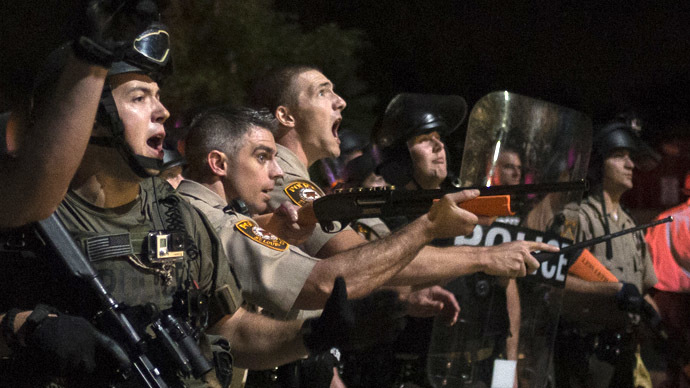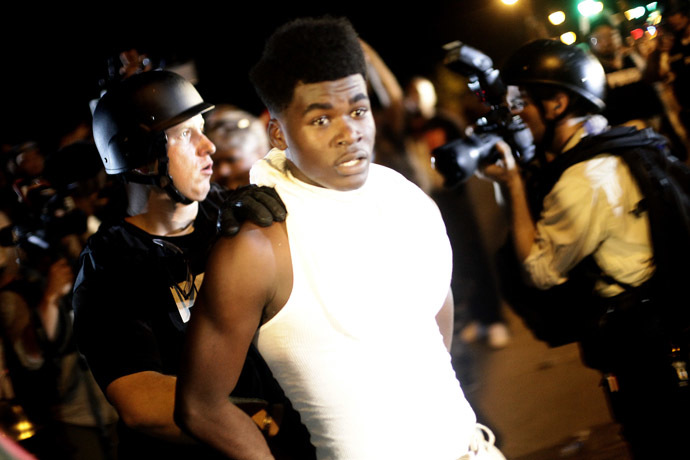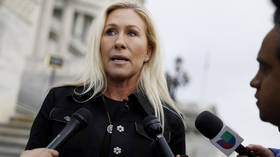Ferguson violence: When riots are the answer

It's been almost 20 years since 2Pac, arguably the greatest rapper in history along with Notorious BIG, sang about the difficulties of being born black in America, and at the same time about the racism of American society.
Twenty years in which nothing has changed for African Americans. It is true, the first black president of the United States has been elected, but the poor continue to be mostly blacks, prisons continue to be populated by mostly blacks, and the policemen - mostly whites - continue to shoot and kill blacks with general impunity.
The killing of the young African American Mike Brown in the suburb of Ferguson, St. Louis, Missouri, all of a sudden revealed the stratification of the American society that is regulated by a ‘systemic’ racism.
…I'm tired of bein' poor and even worse I'm black.
My stomach hurts, so I'm lookin' for a purse to snatch.
Cops give a damn about a negro? Pull the trigger, kill a nigga, he's a hero.
Give the crack to the kids who the hell cares? One less hungry mouth on the welfare…
Changes – 2Pac
In a suburb with a large concentration of poor blacks under the control of white institutions, Brown’s killing immediately struck a nerve. Protests erupted as people took to the streets, and rallies culminated in riots.
The media immediately tried to divide the protesters in two: the good guys – those who were protesting, but mediating with the police – and the bad ones – those throwing Molotov cocktails at officers. Those in this second group were represented as irrational destroyers of a peaceful and reasonable protest, but the crowd wasn’t irrational or apolitical.
Riots, especially in this case, are a political means. Protesters were attempting to use this opportunity to address their broader political needs. It is the only way to show that they exist.
In the American suburbs, like in those in France, Great Britain, Italy and other countries, violence is the political means. Violence is, almost always, the effect and not the cause of the concentrated poverty that locks many poor people up together, as in Ferguson, with no imaginable way out and no productive move to channel their rage for not having an existence similar to the American dream.
Usually when events like the Ferguson rebellion occur, well-meaning people flock to condemn the protesters. They dismiss rioting as unproductive and opportunistic.
But what can the Ferguson people do? Do they have to present themselves in ways that are acceptable to the dominant white class in an effort to make political gains? We have seen that this does not work. In the States, in a context of white supremacy and neoliberal capitalism, race-neutral policies have been used to maintain class exploitation and racial hierarchy. Too many African Americans continue to live on the margins of society, locked in their ghettos with little chances to change their lives.

And it is no accident that when speaking about Ferguson, politicians and media have forgotten to describe Ferguson as it really is: a ghetto. For the African American community, ghettos are not simply the physical location of their marginalization, they are, primarily, a non-place in which the most basic forms of social control are implemented – and drugs are just one of these.
The ghetto is at the same time a physical and a metaphysical space of segregation. We are used to thinking of the ghetto as a thing of the past, something related to the persecution of the Jews in Europe and nothing else, but in 2014 ghettos are still part of American society. And if you live in a ghetto, or a suburb as the media like to describe Ferguson, how can you channel your social anger if you have nothing, and nothing to lose? How can you channel your rage for an 18-year-old guy, probably a friend, killed without motivation by a policeman?
So it is for this reason that I cannot condemn those involved in the Ferguson riots. I cannot condemn them because I understand and respect black anger. I cannot condemn them because I understand and respect black people’s right to shout for another of their young kids killed by the hands of the police.
In the States property is valued more than black lives, and it is not a coincidence if 150 years ago black people’s lives were white property - they were considered and described by the laws of the Southern States as ‘chattels’. We must open our eyes and see the illusion of post-racial politics in American society, an illusion that goes hand in hand with neoliberalism and media propaganda.
Malcolm X reminds us that the media is a key instrument of subjugation, because it determines which acts are respectable and which are extreme and thus illegitimate.
Well, the Ferguson riots are respectable.
The statements, views and opinions expressed in this column are solely those of the author and do not necessarily represent those of RT.
The statements, views and opinions expressed in this column are solely those of the author and do not necessarily represent those of RT.













